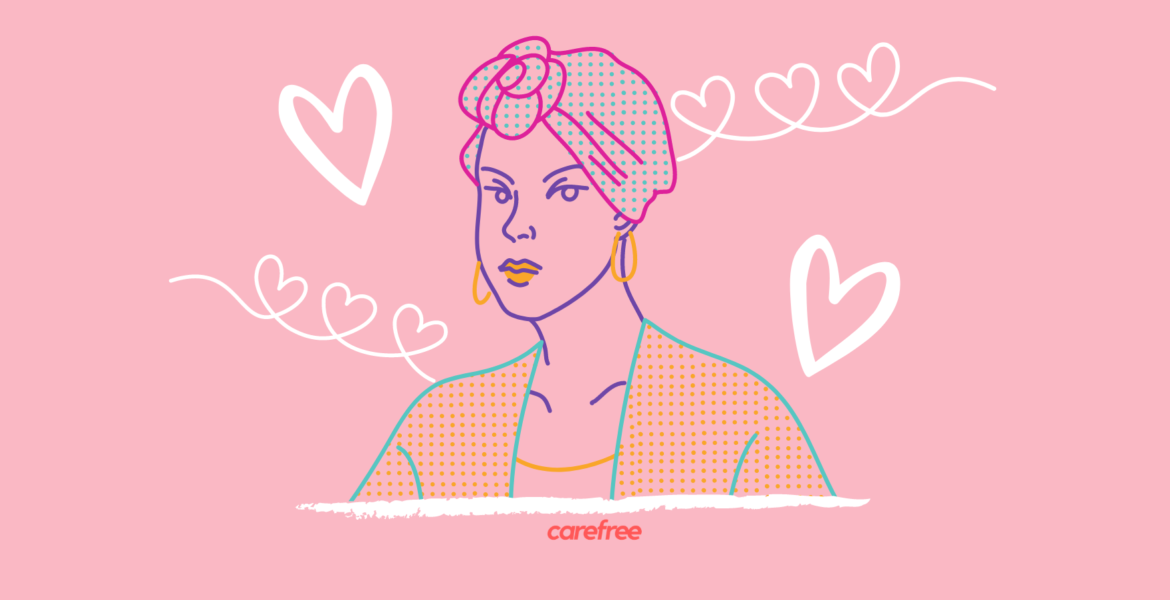“What about you? Are you in a relationship?”
I stare at the question onscreen, my fingers hovering over the keyboard. I could lie. Or be vague. To the friend that’s posed the question in an email, it won’t matter either way but I want to be transparent. I type, “No, I’m a love addict so until I heal the attachment wounds from my childhood, it’s best I remain single.”
Now it’s likely my friend won’t know what a “love addict” is. Maybe she’ll liken it to being boy crazy (or, in my case, boy and girl crazy). It certainly doesn’t hold the same gravitas as “drug addict” or “sex addict” and as a concept, it’s hard to wrap your head around. Addicted to love? How is that a bad thing? Love is what makes the world go ’round. We all need and want love. Yes, I could’ve identified as a codependent – that she’d understand but truthfully, it’s not about her. My decision to disclose my illness is an attempt to dismantle my shame around it, as is writing this article.
So what is love addiction? To put it broadly, it is a defense mechanism against the psychological pain caused by childhood emotional neglect. In other words, we didn’t feel loved as kids and so we obsessively seek that love and validation from others except ironically, it’s not actually love we’re seeking out. We think it’s love but it’s not.
See, in addition to love addicts having an irrational fear of abandonment, we also have a fear—a subconscious one—of healthy intimacy (neglect we understand, neglect we’re comfortable with). So rather, we are addicted to the fantasy of love as perpetuated by pop culture and mass media. And our self-esteem? Hahahaha, what self-esteem? We reasoned we didn’t receive the love we needed as children because we were undeserving, defective, bad, or “not enough”. It’s why as adults we settle in our relationships and it’s why I’ve only ever dated other addicts, dropkicks, assholes, and enablers. See: “like attracts like.”
It’s common to associate childhood trauma with volatile households and villainous caregivers (think Matilda’s parents, Precious’ mum, Harry Potter’s aunt and uncle, Jack Torrance). We picture a child who has been abandoned, beaten, or terrorized—but emotional neglect is different.
Dr. Jonice Webb, psychologist and best-selling author of Running on Empty: Overcome Your Childhood Emotional Neglect, defines emotional neglect as, “a parent’s failure to notice, attend to, or respond appropriately to a child’s feelings”. Psychologist, Paola Bailey adds that unlike emotional abuse, “childhood emotional neglect tends to be (not always, of course) a bit more subtle, a bit more nuanced, a bit harder to pinpoint, and thus a lot harder to recognize and to understand.”
In short, your parents may have been lovely, well-meaning folks and they may have provided you with health care, clothing, shelter, food and education but they still may have failed to respond adequately to your emotional needs. If you didn’t feel consistently nurtured, protected, or heard as a child, chances are you’ve experienced emotional neglect. And again, your caregivers may have been awesome. They may have simply been preoccupied with work or an illness or the care or loss of another family member or they may have just had emotional blind spots.
Alternatively, they could’ve been dicks. Not necessarily monsters but, they could’ve had their own issues. Maybe your mother was emotionally immature or self-absorbed. Maybe your father was hypercritical or emotionally unavailable. Maybe their love felt dependent on getting good grades and excelling at basketball or violin. Maybe they practiced an authoritarian, ‘old school’ style of parenting where autonomous thinking and curiosity was forbidden and punished. Or maybe they just weren’t particularly warm or encouraging. Whatever the case may be, it all constitutes emotional neglect and it can all have an adverse effect on how we navigate adulthood.
While the signs of my codependency were present in my childhood, it wasn’t until I was in my twenties that I was at my most destructive, hurtling from one unhealthy relationship into another in a desperate attempt to fill the void within. Of course, it never mattered who I was with, the pattern was always the same.
Meet someone.
Fall “in love” quickly.
Drop everything and everyone for this person.
Ignore the red flags.
Neglect myself.
Grow anxious as the reality of the relationship increasingly fails to align with my fantasy of one.
Eventually give up, exit the relationship, and start again.
It wasn’t until my fourth serious relationship—my most toxic—that I finally hit rock bottom and realized something was awry within myself, though what exactly I didn’t know. Searching on Google for answers, I somehow stumbled upon a quiz titled, ‘40 Questions to Help You Determine If You Are a Love Addict’ and aced it.
That was three years ago. Since then, I’ve sought help in all its various forms from books and podcasts to therapy and twelve-step programs (SLAA) and while I’m nowhere near the finish line (if such a thing can even exist), I do have increasingly less shame around my addiction and increasingly more awareness and that’s a bloody good start.



Bravo!
Excellent voice, very informative and approachable! Also sounds like you are on a positive path in treating your love addiction *claps*
Thank you for your honest and vulnerable share. You speak for me: those nuances of neglect that formed the background of my intimacy avoidance. I affirm your courage and your contribution to us suffering love addicts, providing hope as I’m not alone.
wow!!
This is so relatable and refreshing t read. I appreciate your courage in writing this.